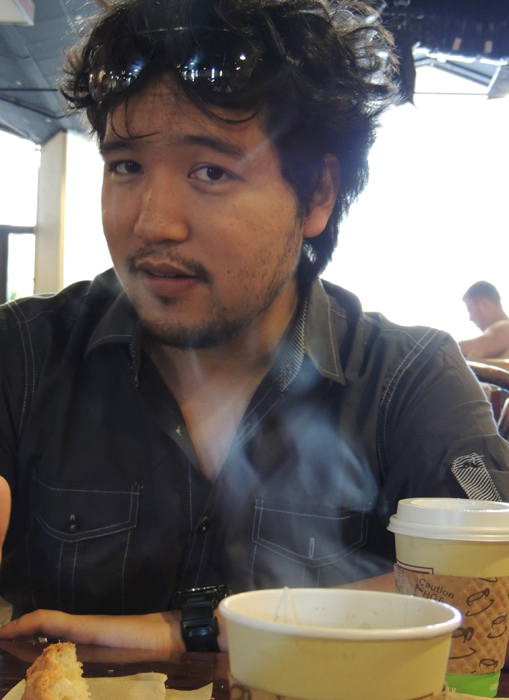Lantern Review: Issue 5
The Hybridity Issue
Spotlight on Takeo Rivera

Takeo Rivera is an artist-scholar, poet-playwright, Japanese-Filipino American born, raised, and still residing in the San Francisco Bay Area. He holds a BA and MA from Stanford University and is currently a PhD student at UC Berkeley’s Department of Theater, Dance, and Performance Studies, where his work revolves around techno-orientalism, race, gender, and trauma. Takeo is a published performance poet and playwright whose play Goliath has been staged in New York City, Los Angeles, and the Bay Area. He also has a history of social services and activism, having worked as line staff for the Rape Crisis Center of the YWCA of Silicon Valley and as a spoken word artist in solidarity with a broad range of progressive social justice movements. Lantern Review caught up with Takeo a few months after the world premiere of his choreopoem Prometheus Nguyen.
LR: As a poet, your roots lie in the culture and practice of spoken word. How did you come to poetry, and in particular, to spoken word? How did you come to write for the stage?
TR: I was first exposed to spoken word when I saw the spoken word group iLL-Literacy perform at my high school. I had considered myself mostly a fiction writer at that point, but when I saw the way that spoken word artists developed a form to reach and move an audience with such power and effectiveness, I knew I had to get involved. I started writing spoken word in high school, but I really started taking it seriously when I went to Stanford and joined the Stanford Spoken Word Collective. I slammed competitively, but I wrote most of my poems for various community groups at campus, for rallies and events, that sort of thing. I enjoyed spoken word because it is such a populist form; it can inspire political or community consciousness so quickly, so collectively.